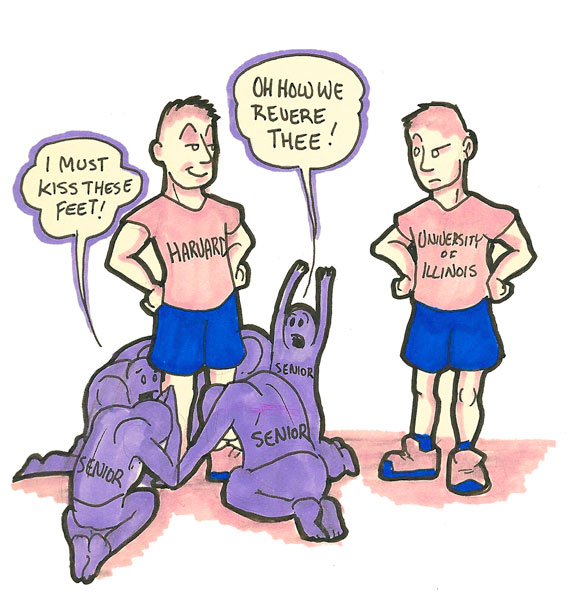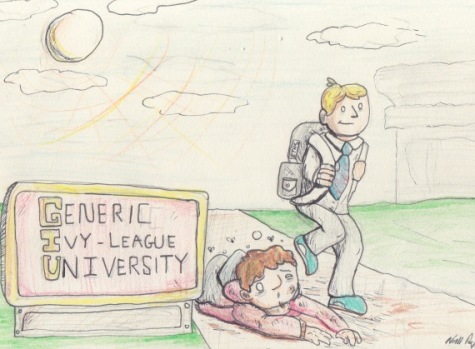Students obsess too much over college

Jane is definitely getting into MIT. Or at least, that’s what everyone is saying, based on her ACT score, avid participation in Chem-Phys, and dedication to the community service club and marching band. From our first days at ETHS, college admissions are all we have thought about. From the clubs students join to the classes they take, it’s all to stand out on college applications. What is this admissions obsession doing to us?
“I’d like to apply to Ohio State.”
“But Ohio isn’t even that good, it’s just a party school.”
“I like it, I don’t know…”
This is the judgemental character of the college-driven student atmosphere. Obsessing over schools with miniscule acceptance rates causes students to compete with those around them. Some eager applicants cannot help but compare themselves to others, and inflate their egos by degrading their peers. This competition creates an unsupportive and stressful environment, limiting interactions to those that are stiff and unfriendly.
This ambience is also keeping students from taking classes they are interested in. They fill up their schedules by racking in irrelevant AP classes they could not care less about, instead of exploring new subjects, art classes, and famed teachers they wanted to learn from.
Those pursuing careers in the performing arts are presented with a forked road, whether to keep rapidly challenging themselves academically as their peers do, or to take easier classes to contribute more time towards their art. Realistically, the artistic capabilities future art and music students possess are the deciding factors in their acceptances, not the standard of their academia. But
aspiring artists are pressured into taking rigorous courses, not wanting to appear inferior to other students at school.
Putting an emphasis on where students end up going to college also creates the notion that certain degrees are better than others. This discourages them from further pursuing subjects they may be interested in, and getting degrees in more lucrative fields instead.
Students think about college in a healthy way, not letting it consume them. Constantly focusing on the future takes away from the present. Focus on the year ahead, not just what will happen after it.
Your donation will support the student journalists of the Evanstonian. We are planning a big trip to the Journalism Educators Association conference in Philadelphia in November 2023, and any support will go towards making that trip a reality. Contributions will appear as a charge from SNOSite. Donations are NOT tax-deductible.







